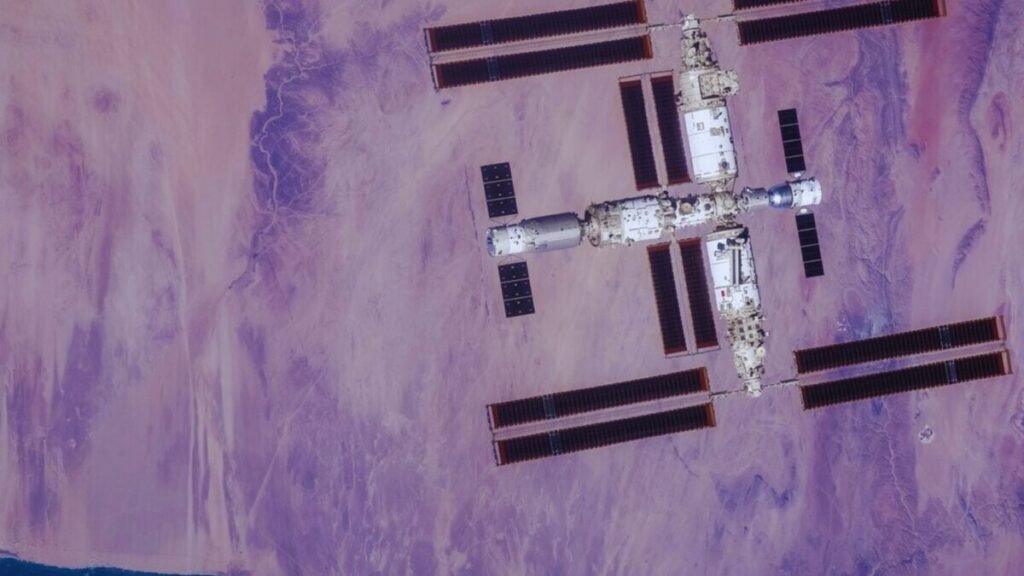“China’s Rise from Outsider to Space Superpower: How they Flipped the ISS Rejection into a Dominant Force that has America Concerned”

What began as a humiliating ban on China in the 1990s has now led to the country establishing its own empire in orbit, after being excluded and marginalized from global navigation systems. Three decades later, China has emerged as a technologically ambitious force to be reckoned with. As the United States faces delays and uncertainties, the story of China’s rise in space exploration is one of patient revenge.
The Door Slam that Lit the Fuse
In 1994, China sought a place at the International Space Station (ISS) program but was met with a resounding rejection, primarily led by the United States citing China as an unreliable partner. This rejection was just one of many blows, with NASA being banned from cooperating with China in 2011. As access to navigation systems like GPS and Galileo was also denied, China was forced to forge its own path towards space exploration.
From Imitator to Pioneer
In 1999, China launched its first manned space mission, marking a significant shift towards independence in space exploration. Milestones followed, including the orbiting of the Moon by Chang’e 1 in 2007 and the establishment of an autonomous navigation network with BeiDou-1. By 2022, the Tiangong space station had entered permanent service, symbolizing China’s independence from the ISS.
The pattern was clear – each setback resulted in China launching its own successful projects, showcasing its technological advancements.
The Moon as a Testing Ground
The Moon became a focal point for China’s space exploration endeavors in the 21st century. The success of missions like Chang’e 5 in 2020 and Chang’e 6 in 2024, which brought back lunar samples from the far side, demonstrated China’s capability to surpass achievements of other space agencies.
Aim for Mars
While the United States faces stagnation in its Mars exploration efforts, China has set ambitious goals for exploring the Red Planet. With plans to launch the Tianwen-3 mission in 2028, aiming to bring back Martian samples in 2031, China could potentially outpace the US in this critical milestone. Additionally, China’s strategic invitation for other countries to participate in its Mars mission further solidifies its leadership in space exploration.
The Shadow Threat
China’s advancements in space exploration are not merely scientific achievements but also carry geopolitical implications. Space is a realm of resources, technological leadership, and military capabilities. The race to establish a base on the lunar south pole, with access to ice water deposits for resource generation, underscores the strategic importance of space exploration.
In just three decades, China has transformed from being excluded and marginalized in space exploration to becoming a leader in the field. With its Tiangong station in orbit, BeiDou navigation system rivaling GPS, and ambitious lunar and Martian missions, China has shifted the global space exploration agenda in its favor. What was once seen as a hindrance has now propelled China towards becoming a major player in space exploration.
The ban imposed on Beijing backfired, prompting the city to innovate and evolve. Now, its advancements in crewed exploration and conquering new worlds pose a threat to even NASA’s progress in this vital field.






